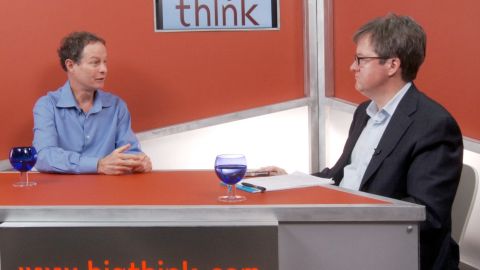Whole Foods CEO John Mackey: Business Can Be “Heroic”

Whole Foods CEO John Mackey thinks that his company’s deepest purpose is a heroic one: to try to change and improve the world. Business enterprises, he says, “can aspire to the highest values that have inspired humans throughout time.” These aspirations will vary from company to company, but Mackey believes that businesses which follow core guiding principles will ultimately be the most profitable as well.
In his most recent Big Think interview, Mackey sat with Harvard Business Review editor Justin Fox to talk about his concept of “conscious capitalism,” decision-making in large corporate environments, and the importance of sustainability for the consumer. This interview is the beginning of an ongoing partnership between Big Think and HBR.
Mackey says that he tries to make major decisions at Whole Foods by trying to come to a consensus among the top minds in the company. When disagreements get expressed through the decision-making process, he says, you generally end up making better decisions. “While it takes longer to make the decision, once you begin the implement it, it goes a lot faster because there isn’t sort of resistance and sabotage that works its way through the organization,” says Mackey.
He also speaks about the growing consumer focus on sustainability, noting that these days even Wal-Mart sells organic foods. He thinks that while many customers respond primarily to price, a new type of customer has emerged who is also keyed into environmental issues and animal welfare.
His passion and policy have at times been accompanied by criticism, which Mackey says he has learned to absorb and process—and which he says ultimately probably make his business stronger. “You can look at all those criticisms and ask what is the truth here and, if there is a truth there then you can learn from that,” he says. Elsewhere in the interview, Mackey outlines his four essential steps to making his business more conscious while also making it thrive, even through the recent economic downturn.





